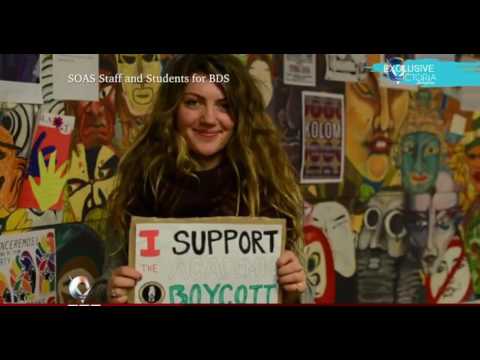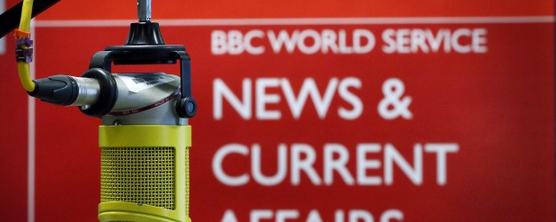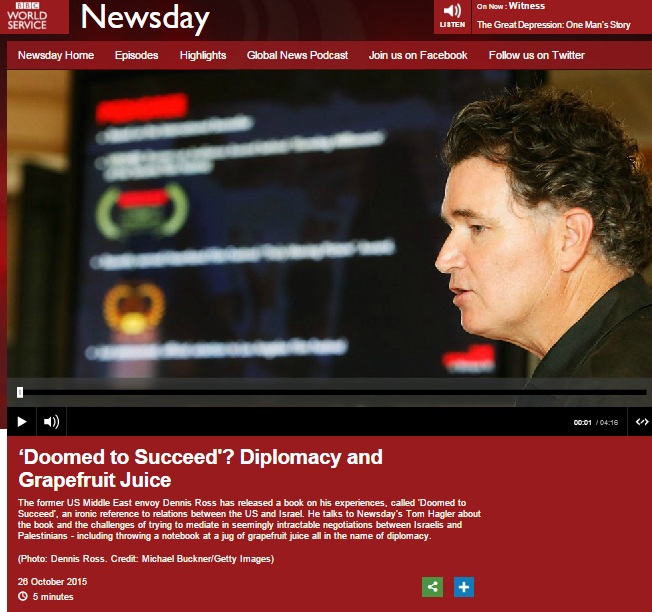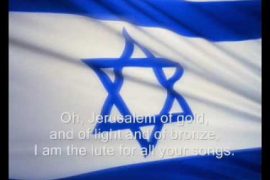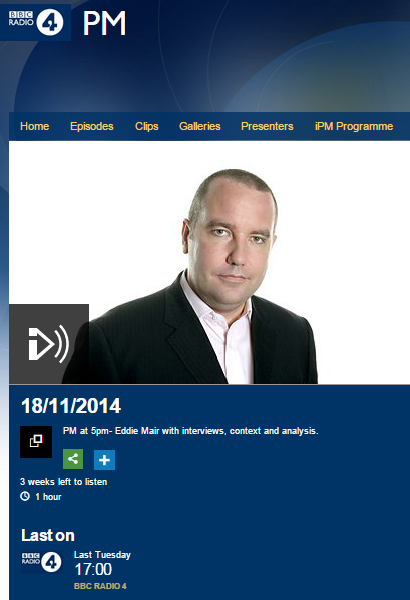For years the BBC has reported stories relating to the Boycott, Divestment and Sanctions campaign (BDS) without adequately clarifying to its audiences that what that campaign ultimately seeks to achieve is the end of Israel as the Jewish state. Moreover, in August 2015, we learned that the BBC considers the provision of such crucial background information “not our role“.
Nevertheless, one might have expected that in two reports specifically relating to the issue of support for the BDS campaign from student unions in British universities, the corporation would have made an effort to get the facts right.
On April 27th BBC Two’s current affairs programme ‘Victoria Derbyshire’ included a report by Jon Ironmonger (available here or here) about a Charity Commission investigation into 17 student unions that have endorsed the BDS campaign.
Having told audiences that Israel is “one subject” that “bitterly divides” students, Ironmonger went on to inform them that:
“The Jewish state of Israel is deeply controversial; accused of wide-ranging human rights abuses against the Palestinian people and provoking anger around the world.”
He of course provided no evidence for that “human rights abuses” smear.
Audiences were later told that: [emphasis added]
“Students’ unions in increasing numbers have been voting to adopt strict anti-Israel policies under the banner of a global movement called BDS – Boycott, Divestment, Sanctions. […]
BDS pressures Israel to end the occupation of Arab lands by calling for the boycott of Israeli companies and institutions.”
Obviously the use of such partisan terminology to describe disputed territory is not consistent with supposed BBC editorial standards of impartiality.
That report included two appearances by Sai Eglert who was described on screen as a “student teacher” and portrayed by Ironmonger as “a member of the Palestine Society at SOAS”. Viewers were not told that Eglert – who has appeared in BBC content before – is a BDS supporter and anti-Israel campaigner.
While interviewing a Jewish student about his experiences, Ironmonger appeared to question the existence of antisemitism at some UK universities.
“What’s fueling this antisemitism – if you like – on campus?” [emphasis added]
In addition to the filmed report, Ironmonger also produced a written article which was published on the BBC News website’s UK page on April 27th under the headline “Concerns raised over students’ unions’ anti-Israel stance“.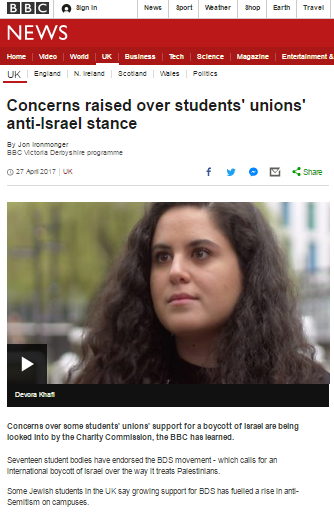
The portrayal of the BDS campaign in that article was no better.
“Seventeen student bodies have endorsed the BDS movement – which calls for an international boycott of Israel over the way it treats Palestinians. […]
The BDS – which stands for Boycott, Divestment and Sanctions – describes itself as a human rights organisation and criticises Israel for its human rights record.
It says it stands for “freedom, justice and equality”, saying it is “inclusive and categorically opposes as a matter of principle all forms of racism” – including anti-Semitism.”
Had audiences been told in the BBC’s own words that the BDS campaign is opposed to Jews having the basic human right to self-determination in their own country and that denial of Israel’s right to exist is considered – including by the UN Secretary General and according to the definition adopted by the UK government – to be a form of antisemitism, they would have been able to put the BDS campaign’s claim to be a non-racist human rights organisation into its correct context.
The subject matter of Jon Ironmonger’s two reports is important and serious. It is therefore all the more regrettable that BBC audiences were not provided with the full range of information critical for proper understanding of this story.

